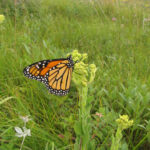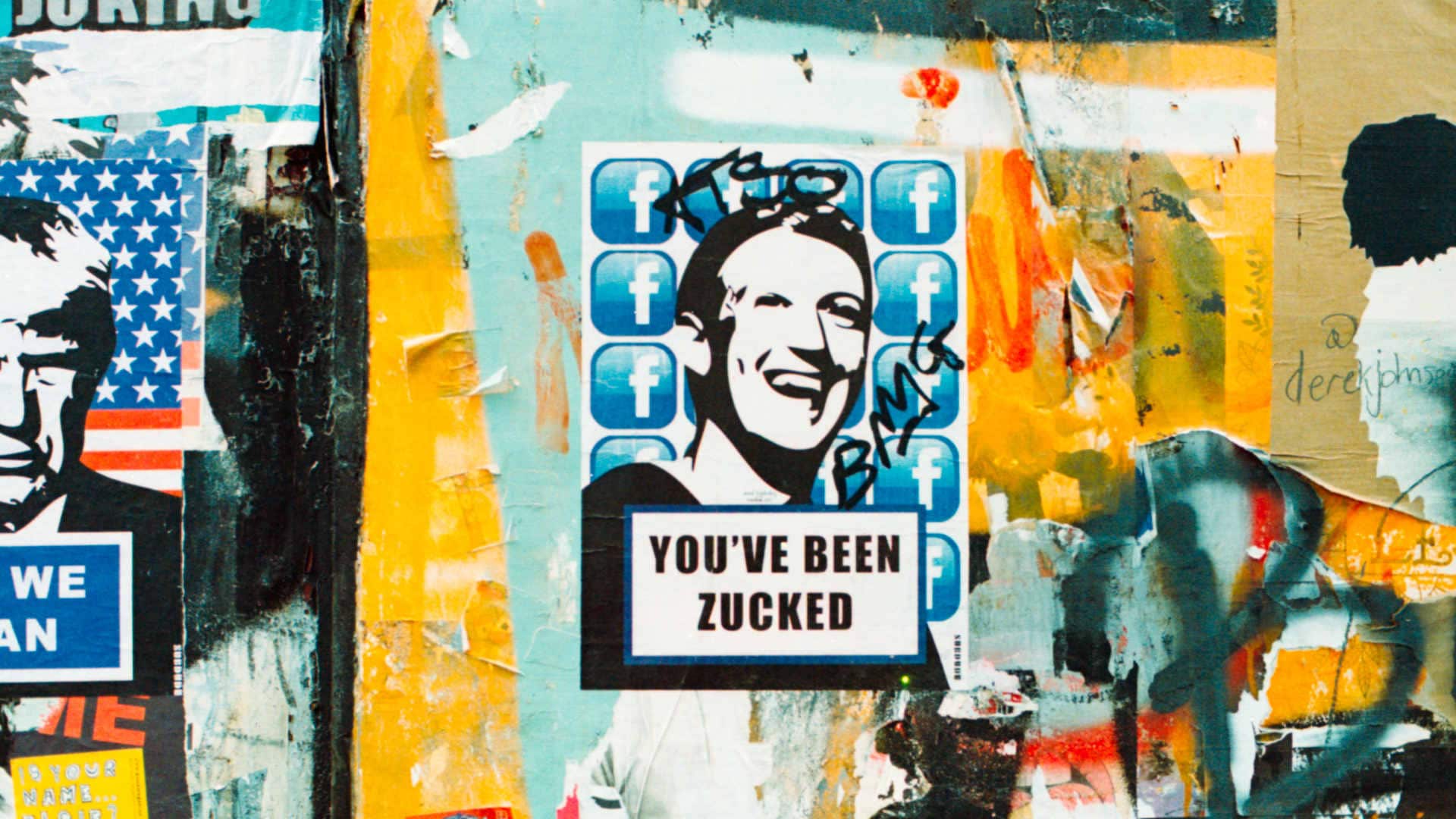Facebook’s Climate Misinformation Problem Is Getting Bigger
The scale of climate misinformation on Facebook is “staggering” and “increasing quite substantially,” a new analysis of thousands of posts has found.
A report released last week by the Real Facebook Oversight Board, an independent watchdog group, and the environmental non-profit Stop Funding Heat, analyzed a dataset of more than 195 Facebook pages and groups. Researchers found an estimated 45,000 posts downplaying or denying the climate crisis, which have received a combined total of between 818,000 and 1.36 million views.
This story was originally published by The Guardian and is reproduced here as part of the Climate Desk collaboration.
The study’s release coincides with the Cop26 climate summit in Glasgow and it urges governments to seriously consider the role of climate misinformation on social media in derailing the battle to reduce greenhouse gas emissions.
“This is where the ambitions of Cop26 and the revelations of the Facebook Papers collide, with our data showing Facebook is among the world’s biggest purveyors of climate disinformation,” researchers said.
The study analyzed 195 pages known to distribute misinformation about the climate crisis using Facebook’s analytics tool, CrowdTangle. Of those, 41 were considered “single issue” pages. With names like “Climate Change is Natural,” “Climate Change is Crap,” and “Climate Realism,” these groups primarily shared memes denying climate change exists and deriding politicians attempting to address it through legislation.
Those that were not “single issue” groups included pages from figures like the rightwing politician Marjorie Taylor Greene, which posted misleading articles and disinformation about the climate crisis.
This “rampant” spread of climate misinformation is getting substantially worse, said Sean Buchan, the research and partnerships manager for Stop Funding Heat. Interactions per post in its dataset have increased 76.7 percent in the past year, the report found.
“If it continues to increase at this rate, this can cause significant harm in the real world,” he said.
A spokesman for Facebook took issue with the methodology of the study, suggesting not all posts flagged in the report represented disinformation.
“We’re focused on reducing actual climate misinformation on our platform, which is why we partner with a global network of fact-checkers and reduce the distribution of anything they rate as false or misleading and reject any ads that have been debunked,” he said.
Facebook previously stated it continues to counteract the spread of misinformation by flagging climate information and referring users to its Climate Change Science Center, which contains data from credible sources on the climate crisis.
On Nov. 1, Facebook’s vice-president of global affairs, Nick Clegg, announced that the center would expand to include more countries and information labels, which it adds to posts about the climate crisis for additional context.
By Facebook’s own count, the Climate Change Science Center receives about 100,000 daily visits globally – a fraction of the number of users who view climate misinformation, according to the study. Facebook has 2.9 billion monthly active users.
As the Cop 26 climate summit continues, activists are calling on the U.S. Congress, the U.K. parliament and the EU parliament to pass legislation targeting Facebook’s massive power in light of its inability to stem climate misinformation.
“Facebook cannot and will not police themselves,” the Real Facebook Oversight Board said in a statement. “We need real, independent, transparent outside oversight and regulation and an investigation into all of Facebook’s activities — including the dangerous spread of climate disinformation.”
Misinformation on Facebook — about climate change and other issues — is largely driven by a small number of sources. The study released last week found 78 percent of the advertising spending identified came from just seven pages, all of which were flagged one year ago in a previous report. Facebook has previously declined to remove the pages.
Facebook has long been criticized for the spread of climate misinformation on its platforms. In May 2021, progressive non-profit Avaaz reported an estimated 25 million views of misinformation related to climate science and renewable energy within just 60 days in the U.S.
The latest study comes days after a separate report this week showed just 10 publishers are responsible for 69 percent of digital climate change denial content on Facebook, including more than 6,983 articles in the past year denying the climate crisis.
The problem is exacerbated by the unequal way in which Facebook moderates its content around the world, Buchan said.
Frances Haugen, a former Facebook employee turned whistleblower, recently revealed that 87 percent of Facebook’s spending on misinformation goes to English-language content, despite the fact that only 9 percent of its users are English speaking.
“That is a very high percentage, and it means there is a whole load of Facebook users being left out,” Buchan said. “There are whole populations who enjoy the Facebook service, and that Facebook is profiting from, while not actually taking care of them.”
Kari Paul is a west coast based technology reporter for Guardian U.S.












Comments are automatically closed one year after article publication. Archived comments are below.
The narrative here is that climate change is divine truth and those who question its scientific validity are heretics and must be silenced.
This report about climate misinformation on Facebook is consistent with my recent experience. I tried to distribute an announcement of California’s initiative to address climate change and related environmental issues such as biodiversity and wildfire hazard mitigation. My intention was to alert the public to the opportunity to comment on the draft program. My introduction to the document was neutral and did not mention climate change. However, the title of the document I tried to distribute included the words “climate smart.” Facebook initially allowed me to boost the post which could have increased the distribution to more Californians.
Unfortunately, climate change deniers spotted my post and posted many comments with their conspiracy theories. One of these commenters apparently complained to Facebook and was able to stop the distribution. Facebook cancelled my ad before it expired. I appealed several times and received vague explanations such as my post was about “social or political” issues and therefore was not eligible for ads. Apparently, Facebook doesn’t consider climate change a scientific issue.
I learned a lot from the climate change deniers. Many of their explanations for their views were new to me. I was able to research and debunk them all easily, but they are rampant and Facebook is essentially promoting them by censuring factual information.
Mary, I’m as worried about global heating as anyone but how does one deal with the fact that 50 million years ago earth was 12 degrees hotter, there was no ice and dinosaurs thrived?
There were no humans or even primates during the geologic era of dinosaurs that were adapted to the climate of that era. That geologic era ended suddenly about 65 million years ago when a gigantic asteroid hit the Earth, causing the equivalent of a long nuclear winter. In other words, when the temperature on Earth suddently plummeted, the dinosaurs were killed, along with the vegetation they ate. The cooler climate was hospitable for mammals that replaced dinosaurs as the dominant animal species. Likewise, when the temperature on Earth suddenly increases, as expected, much of the Earth will not be liveable for large mammals such as humans. The plants and animals that survive the warmer climate will be different. When the climate changes, the vegetation changes as well as animals that eat the vegetation. This is a pattern of change that has occurred many times in the 4.5 billion years of Earth. Not every climate change has been cataclysmic, but the end of the dinosaur era was and current climate change is also occurring just as rapidly. Elizabeth Kolbert’s The Sixth Extinction is a good source of information about the history of the Earth’s many climate changes, their causes, and the consequences of them.
Are you my wife Mary Kari Paul thus be Logan Eďward shanahan